
Those cattle are smarter than you think. I made the mistake of crawling through the barbed wire… About four days later I had a cow inside my yard… He had watched me … he did exactly the same thing. I’m glad he didn’t tell all of his buddies how to do it.
1. What led you to the mission of being a gentleman rancher?
My father in law was Charlie Eubank. He worked out of Omaha for a while. 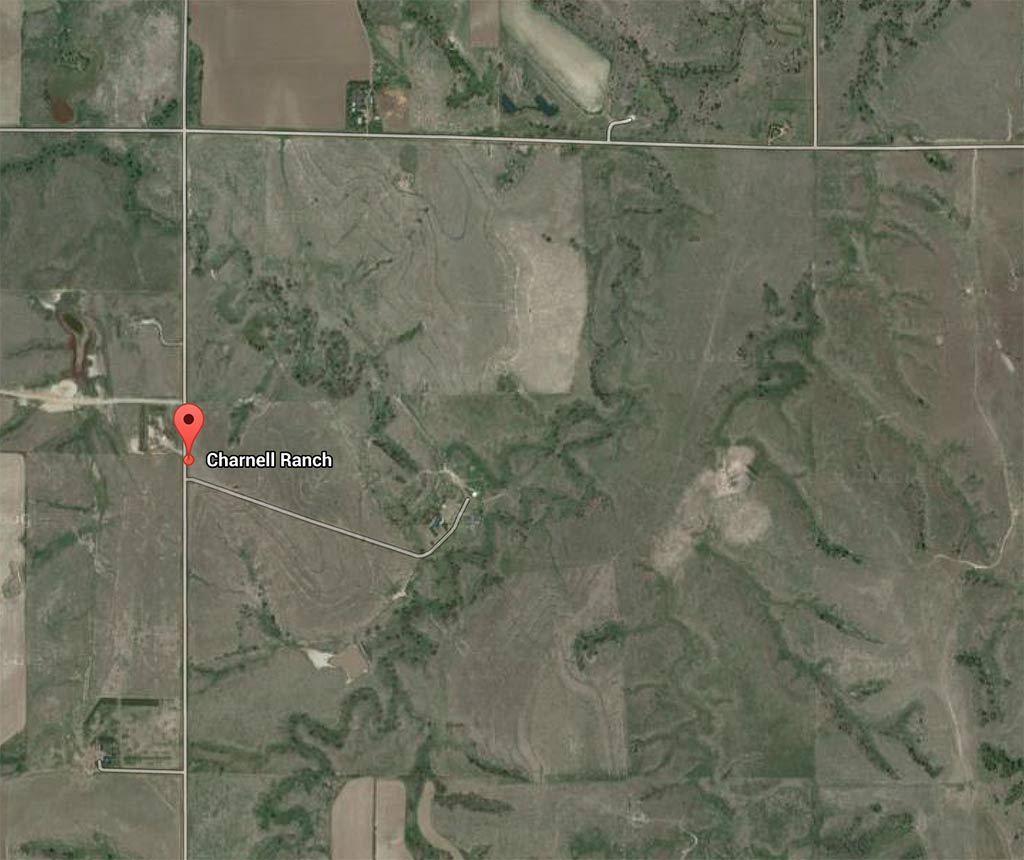 He bought some farmland south and east of Hastings, Nebraska in 1939, 1940 time period. The war came along and his land was taken over for the Naval Ammunition Depot that is located in south and east of Hastings, Nebraska. (To learn more about the Naval Ammunition Depot NAD in Hastings, Nebraska, click here.) Pictured is the ranch land satellite view.
He bought some farmland south and east of Hastings, Nebraska in 1939, 1940 time period. The war came along and his land was taken over for the Naval Ammunition Depot that is located in south and east of Hastings, Nebraska. (To learn more about the Naval Ammunition Depot NAD in Hastings, Nebraska, click here.) Pictured is the ranch land satellite view.
He lost that farm and got paid for it. It was good farm ground. He moved to the Kearney, Nebraska area. After the war in 1948, this piece of farm or ranch ground became available and he bought it. He put some cattle on there. He was going to raise cows and calves. In 1948 they had this horrible snowstorm in which a lot of cattle died because they could not be fed. It was early in the fall before a lot of cattle got out of the pasture.
I wasn’t associated with him or my wife at that time but I knew they were using these C-119 Flying Boxcars that had the tail that could be opened up. 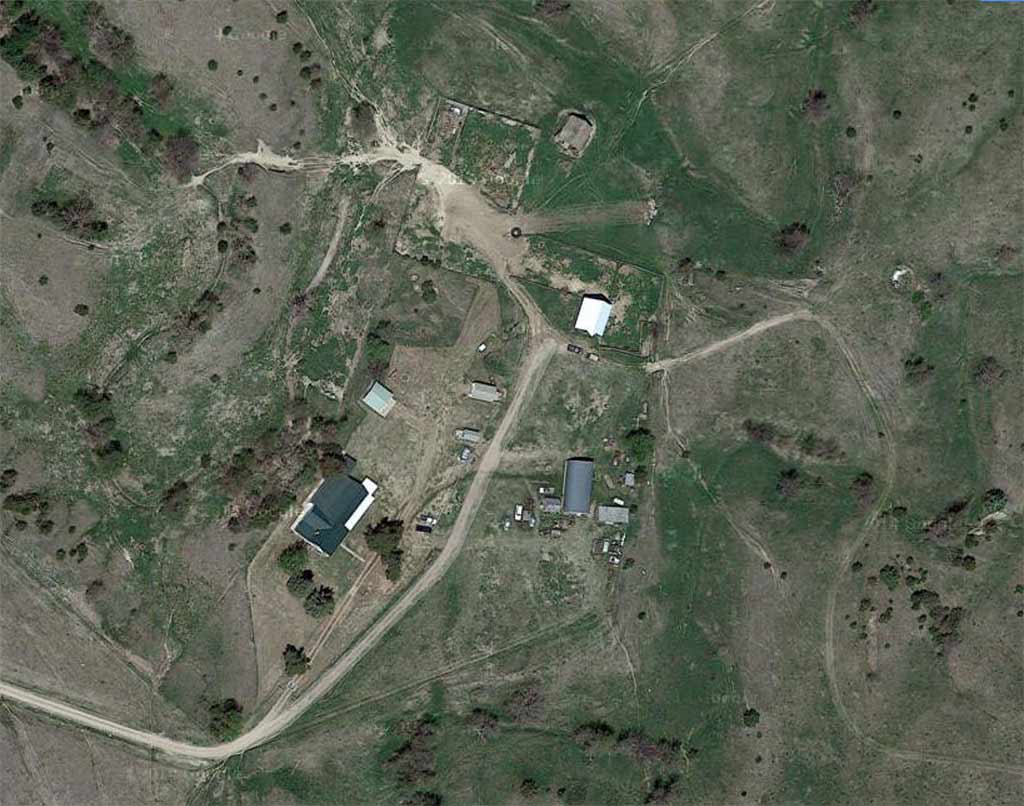 They were dropping hay out of the airplane so they could keep the cattle fed. (To see a video of a C-119 Flying Boxcar, click here.) Cattle are different than horses. Horses will paw the ground to get down to the grass. But the cattle won’t. They will just sit there and wait for the grass to come to them. They won’t dig for it. Pictured is the land with buildings.
They were dropping hay out of the airplane so they could keep the cattle fed. (To see a video of a C-119 Flying Boxcar, click here.) Cattle are different than horses. Horses will paw the ground to get down to the grass. But the cattle won’t. They will just sit there and wait for the grass to come to them. They won’t dig for it. Pictured is the land with buildings.
My father in law lost his whole herd – all cattle and calves. This was a big loss for him at that time. They didn’t have any insurance that I know of. So, since that time all he did primarily was rent the pasture out to other people who wanted to run cattle on the pasture during the summertime. That’s what we ended up doing and continued to do.
We’ve had the same family using the pasture for probably the last thirty years. 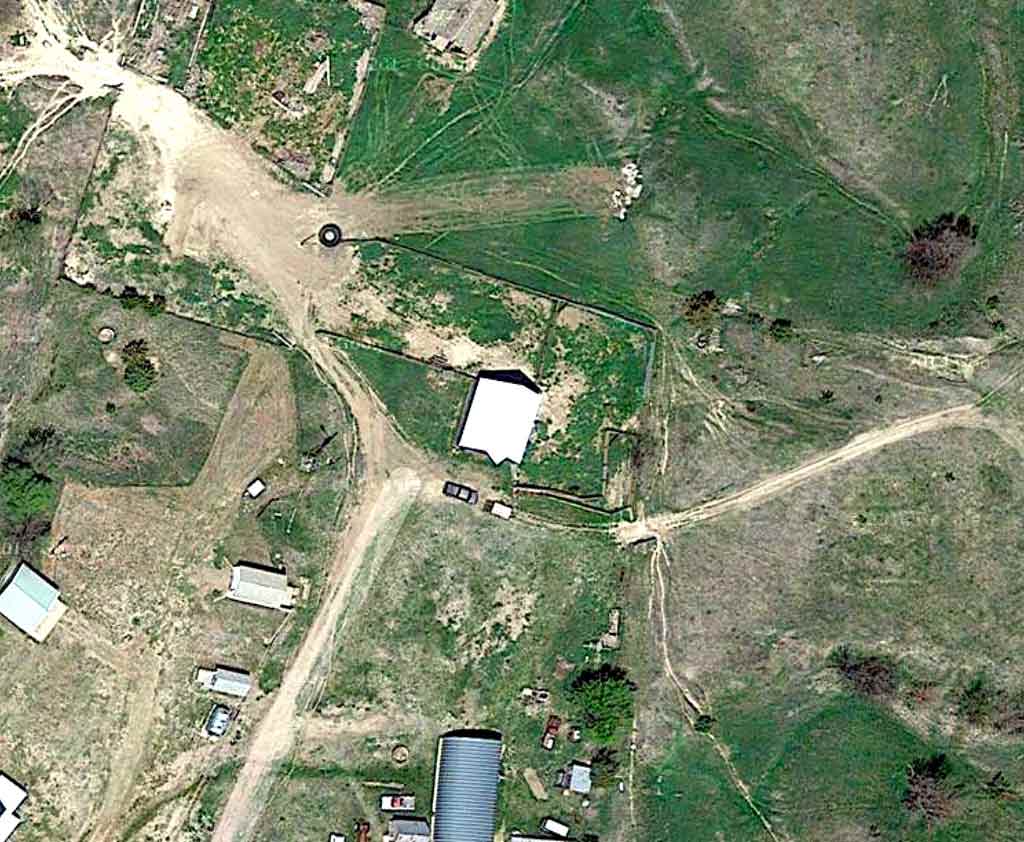 We bring the cattle in from the middle to the end of May after the grass has grown real well. They stay until the middle of October and maybe as late as the middle of November — if the weather is good. They put on weight. Pictured is a detail of the outbuildings and house.
We bring the cattle in from the middle to the end of May after the grass has grown real well. They stay until the middle of October and maybe as late as the middle of November — if the weather is good. They put on weight. Pictured is a detail of the outbuildings and house.
I’m a gentleman rancher. I don’t know lot about cattle except what they look like and what their problems are. My job primarily is to make sure all the fences are mended and in good shape to keep the cattle on the land. I make sure all the wells are working so that they have all the water that they need. In the summertime they need a lot of water.
I use the term gentleman rancher because I don’t know that much about cattle.  We generally have what they call “Black Baldies” which are a combination of the Angus and Hereford. They have black bodies with white faces. A gentleman rancher is someone who enjoys the outdoors and enjoys taking care of the land and making sure it is good for whatever purpose your are using it for – and taking care of it.
We generally have what they call “Black Baldies” which are a combination of the Angus and Hereford. They have black bodies with white faces. A gentleman rancher is someone who enjoys the outdoors and enjoys taking care of the land and making sure it is good for whatever purpose your are using it for – and taking care of it.
The cattlemen take good care of their animals. They make sure they are healthy. We normally have about 160 to 250 cattle per year according to the condition of the pasture. We have a square mile of land. The cattle are grass fed.
We’ve got three ponds on the place. They had never all gone dry. But for the last seven years we’ve been in a bad drought time. Only one pond has kept water in it. They other two have gone dry. It’s been so dry. But we’ve had enough rain last summer that the pasture is good and the cattle did good, so we’re happy with that.
2. What does this mission mean to you?
Primarily I stay on the ranch during the summertime and make sure everything is going good and that the cattle are in good shape. 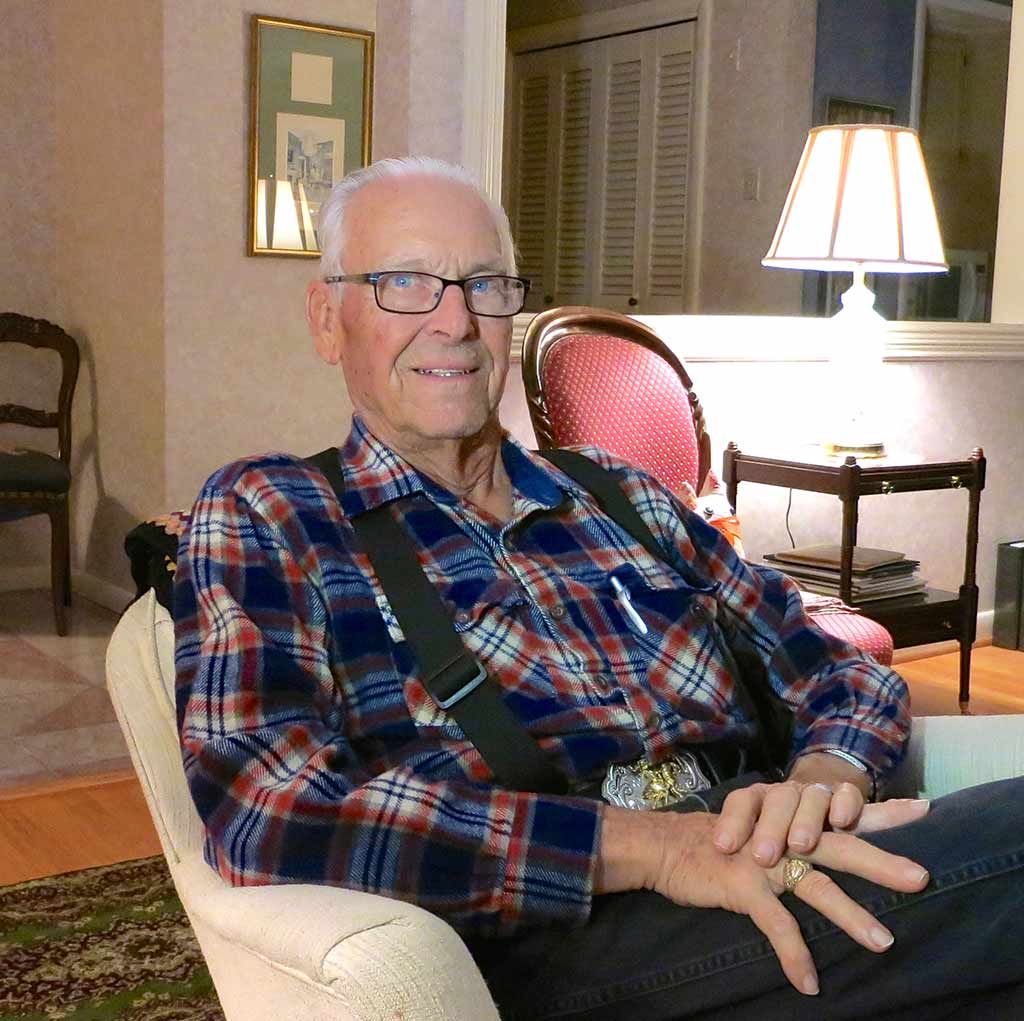 The person who rents the ground has his own man come out and check the cattle to make sure that they are not sick and that there are no sick ones. They cattle have to walk past the house every day where I can see them going to get water. When I see them, if there is one limping or has pink eye, I’ll mention it to the man that owns them and he’ll check it out, load the cattle out and take them to the vet to be treated.
The person who rents the ground has his own man come out and check the cattle to make sure that they are not sick and that there are no sick ones. They cattle have to walk past the house every day where I can see them going to get water. When I see them, if there is one limping or has pink eye, I’ll mention it to the man that owns them and he’ll check it out, load the cattle out and take them to the vet to be treated.
Being a gentleman rancher, I really don’t do anything as far as buying the cattle. I make sure that the cattle have grass and I take care of the weeds that have to be controlled. That’s part of the job. I make sure the pasture is in good shape.
With ranching in Nebraska we have a lot of wild animals. There’s deer on the place that I have seen. When I left the ranch yesterday morning, there was a covey of quail running across the road. 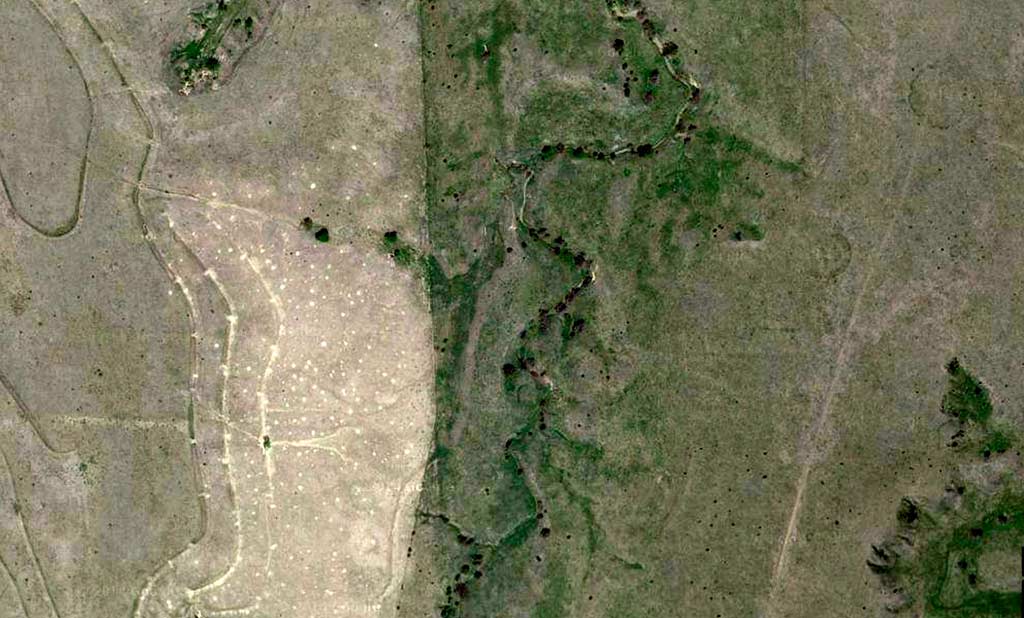 They are around. We have a few pheasants. We have raccoons, possum, skunks, squirrels. We’ve got two prairie dog towns on the place. Prairie dogs can ruin a big pasture. They can be controlled. I try to control mine by letting anybody that wants to shoot prairie dogs come on the place when there aren’t cattle there. Prairie dogs are hard to shoot because you take on shot and they dive into their holes and they don’t reappear for about twenty or thirty minutes. So you can’t get too many of them. But we have been able to keep them controlled that they don’t spread out too far. Pictured is the natural prairie on the right and prairie dog village on the right.
They are around. We have a few pheasants. We have raccoons, possum, skunks, squirrels. We’ve got two prairie dog towns on the place. Prairie dogs can ruin a big pasture. They can be controlled. I try to control mine by letting anybody that wants to shoot prairie dogs come on the place when there aren’t cattle there. Prairie dogs are hard to shoot because you take on shot and they dive into their holes and they don’t reappear for about twenty or thirty minutes. So you can’t get too many of them. But we have been able to keep them controlled that they don’t spread out too far. Pictured is the natural prairie on the right and prairie dog village on the right.
Out in the west there are prairie dogs that will cover hundreds of acres of land. They can ruin a good pasture because they can eat it down almost to the roots like sheep do. As long as they are kept in their own little area, I don’t have to worry about them too much.
We have bull snakes, rattle snakes, garter snakes – all kinds of snakes. 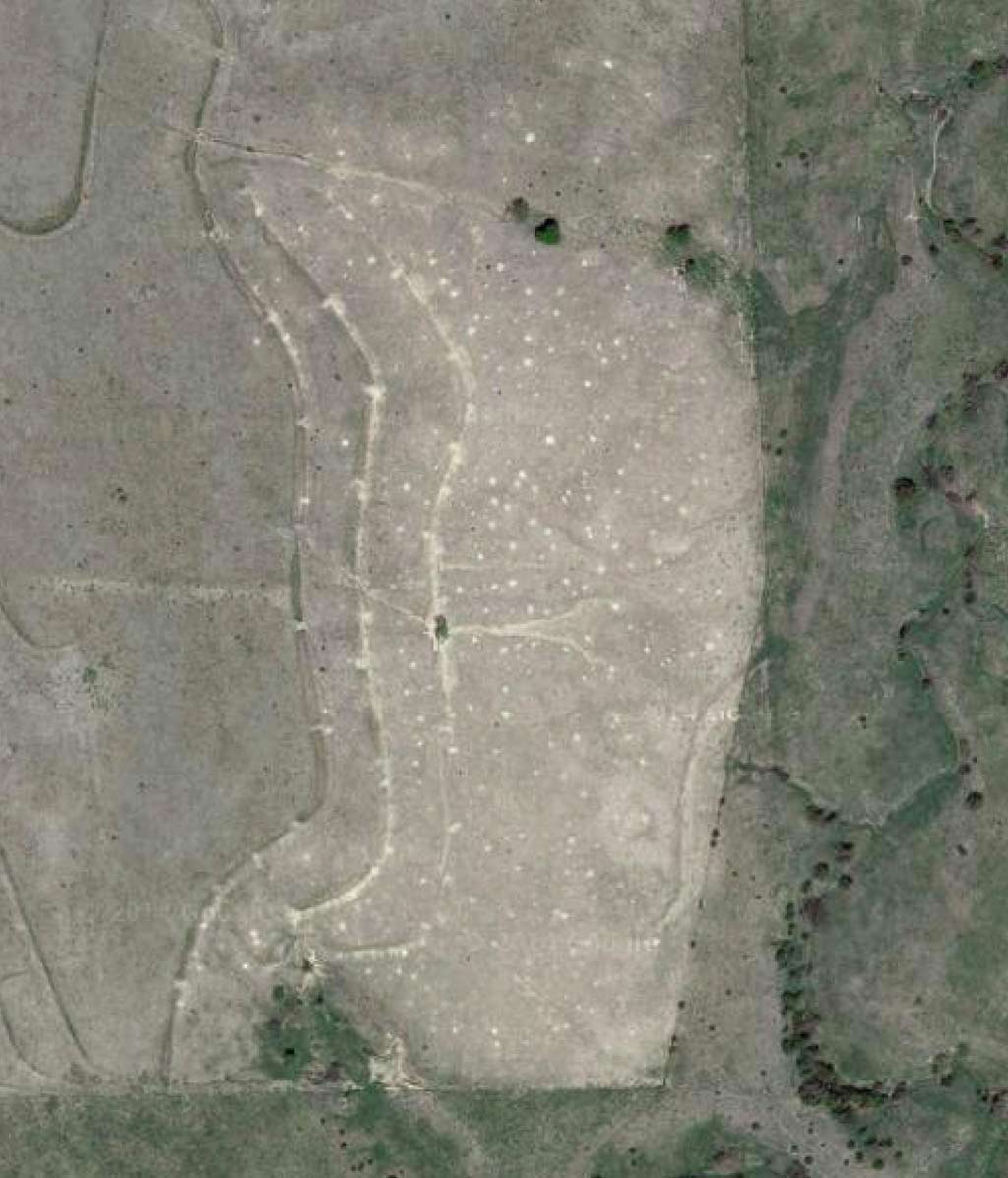 We have one hill and a hired man killed forty-three rattlesnakes on one hill. I’ve got the tails for them all. I kept them in a box. I’ve got a whole tin box full of rattlesnake rattles. So we told all of our kids, “If you’re going out in the pasture, you take a shovel with you at all times. Take a spade type of shovel with a long handle. Make lots of noise when you are going along.” Because if a rattlesnake hears a loud noise before you get there he’s going to take off. They only time they will really coil up and threaten the strike is when they are cornered or if you suddenly come upon them and surprise them. That’s when they will get defensive. I’ve never gotten any inside my yard, but in between the house and the machine shed, I’ve cornered a couple of rattlesnakes and dispatched them with a shovel. There are lots of things to do as a gentleman rancher. Pictured is the prairie dog village on the ranch.
We have one hill and a hired man killed forty-three rattlesnakes on one hill. I’ve got the tails for them all. I kept them in a box. I’ve got a whole tin box full of rattlesnake rattles. So we told all of our kids, “If you’re going out in the pasture, you take a shovel with you at all times. Take a spade type of shovel with a long handle. Make lots of noise when you are going along.” Because if a rattlesnake hears a loud noise before you get there he’s going to take off. They only time they will really coil up and threaten the strike is when they are cornered or if you suddenly come upon them and surprise them. That’s when they will get defensive. I’ve never gotten any inside my yard, but in between the house and the machine shed, I’ve cornered a couple of rattlesnakes and dispatched them with a shovel. There are lots of things to do as a gentleman rancher. Pictured is the prairie dog village on the ranch.
3. What was your best day being a gentleman rancher?
The best days are divided in half. That’s when they bring the cattle in and unload them from the truck. I can see them scamp around the trailers and hit the ground running. They wander around and find where the water is. That is very satisfying – seeing these young cattle and young steers getting on the pasture for the first time.
The other time is when they round them up in the fall, head them into the chutes, check them over and make sure everything is good. 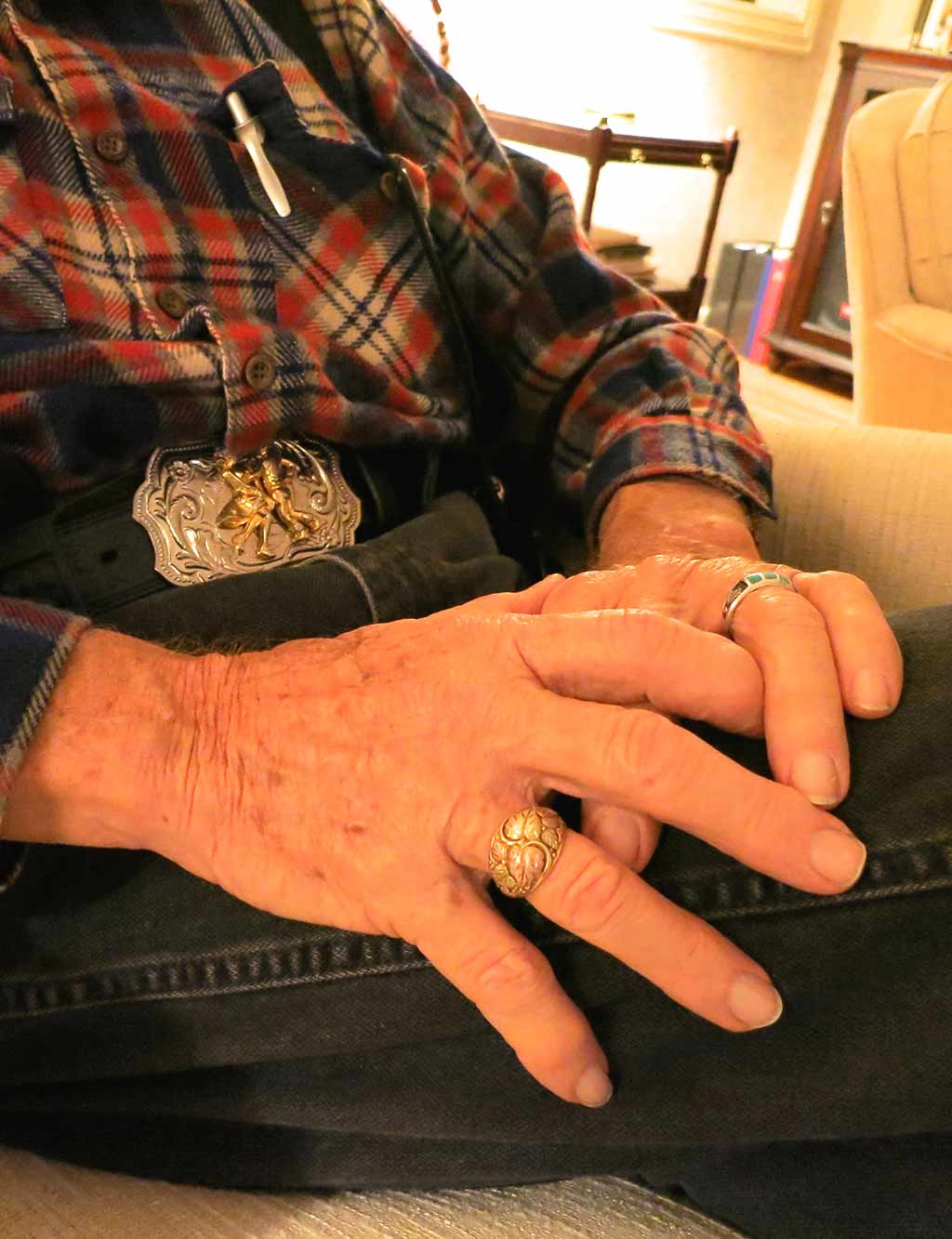 Every time they do load the cattle up, we have a brand inspector that is there at the same time and he checks the brand on the cattle and makes sure that they belong to the fellow that is running the pasture. Occasionally we get some that get into the pasture that don’t belong to him.
Every time they do load the cattle up, we have a brand inspector that is there at the same time and he checks the brand on the cattle and makes sure that they belong to the fellow that is running the pasture. Occasionally we get some that get into the pasture that don’t belong to him.
Yes! They crawl through the fences or jump the fences. About forty years ago we had three of them that showed up in our pasture. They didn’t belong to our owner so we check the brand out and we found out they belonged to a rancher about four miles north of us. He has a feedlot. They got out of the feedlot, wandered down the road, got though the cornfields and ended up in our pasture.
Those cattle are smarter than you think because one year I made the mistake of crawling through the barbed wire fence that separates the barnyard from my house lawn.  Instead of using the gate, I just crawled through the fence. About four days later here I had a cow inside my yard and enjoying the nice green grass growing in my yard. So I chased him out. And I saw him come back and he went through that fence just like I had. He had watched me get my head down, go through that fence, put one leg through, pull the other leg through and he did exactly the same thing. So they are smarter than you think. I’m glad he didn’t tell all of his buddies how to do it.
Instead of using the gate, I just crawled through the fence. About four days later here I had a cow inside my yard and enjoying the nice green grass growing in my yard. So I chased him out. And I saw him come back and he went through that fence just like I had. He had watched me get my head down, go through that fence, put one leg through, pull the other leg through and he did exactly the same thing. So they are smarter than you think. I’m glad he didn’t tell all of his buddies how to do it.
So I got some fertilizer left in my yard. I’ll let it dry in my yard until spring. Then I’ll go lift it up off the grass and with my lawnmower I’ll spread it around. That’s the cows and what they leave. They don’t make any difference where they drop their cow patties.
4. What was your worst day being a gentleman rancher?
My worst day was one when my neighbor called and said, “Hey I think you’ve got come cattle out in the road. I think they are yours.”  So I went out and with my truck I saw about thirty of them out in the road. With the truck, I went to the south end of the road and turned the truck around and kind of herded them back toward the gate. I called the fellow that owned the cattle. He came out from town about fifteen minutes later. He found out where the fence had broken down. He and his son fixed the fence where it had been broken. The driveway into the ranch I had fixed so that if we had to herd cattle back into the ranch, we could open the fence up to get them back into the pasture.
So I went out and with my truck I saw about thirty of them out in the road. With the truck, I went to the south end of the road and turned the truck around and kind of herded them back toward the gate. I called the fellow that owned the cattle. He came out from town about fifteen minutes later. He found out where the fence had broken down. He and his son fixed the fence where it had been broken. The driveway into the ranch I had fixed so that if we had to herd cattle back into the ranch, we could open the fence up to get them back into the pasture.
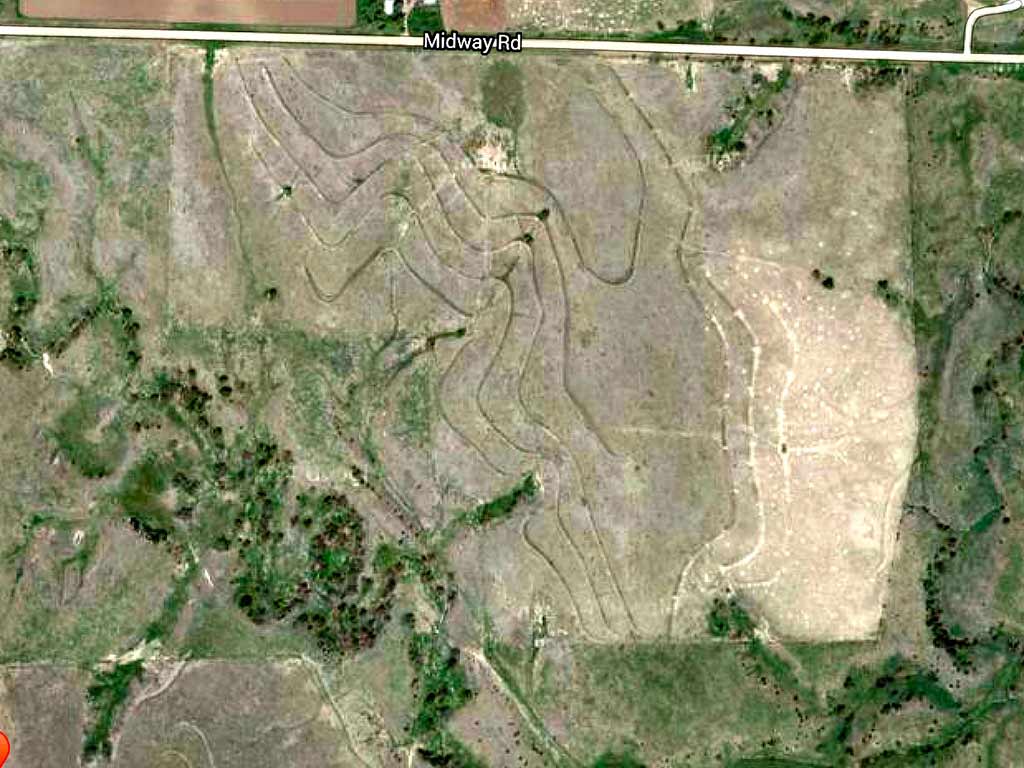 So we just kind of drove them along in the ditch in the road along the fence until they came to the gate and they wandered through the open gate and back into the pasture. That’s what I consider my worst day with the cattle because they were out there and we didn’t want them to go down the road south or go up the road north. We wanted to keep them contained. Pictured you can see the terraced land excavated as a part of the government land bank program twenty years ago. The land was terraced to hold back water and prevent erosion.
So we just kind of drove them along in the ditch in the road along the fence until they came to the gate and they wandered through the open gate and back into the pasture. That’s what I consider my worst day with the cattle because they were out there and we didn’t want them to go down the road south or go up the road north. We wanted to keep them contained. Pictured you can see the terraced land excavated as a part of the government land bank program twenty years ago. The land was terraced to hold back water and prevent erosion.
I don’t know how the fence broke. It was probably from age or the cattle could have been pushing up against it. They will get in a group occasionally and just moving around will push against it. Not on purpose.
4. How did you survive your worst day?
Generally it’s a bad day because something has gone bad and you’ve got to do the work to correct it. In this case it was mending the fence – getting the fence back up so it would hold the cattle.
 When we moved out to the ranch, one thing we didn’t like when mom and dad were on the place was when the cattle were at the gate that always had to be open to drive into the yard. It had to be closed behind you. In fact there were two gates, one at the road and another gate where it went into the house. So there were basically two gates that had to be opened.
When we moved out to the ranch, one thing we didn’t like when mom and dad were on the place was when the cattle were at the gate that always had to be open to drive into the yard. It had to be closed behind you. In fact there were two gates, one at the road and another gate where it went into the house. So there were basically two gates that had to be opened.
Of course whoever sat in the gate side, the passenger seat had to open the gate. If you were by yourself you had to get out yourself, make sure there weren’t any cattle around, get out, open the gate, close the gate, and then continue on. When I moved out there I had some cattle guards made. We dug the trenches necessary to put them in. The cattle guards are made out of three-inch oil well pipe. Real sturdy pipe. I had a blacksmith up in Sumner, Nebraska make them for me.  He said and eighteen-wheeler could run over them. They are well built. The cattle will not cross a cattle guard. Snow will fill them up and the cattle will get out except we make sure the cattle are out before the snow gets heavy. They are gone by the time the snow arrives. It works much better if the pipe is painted white and you’ve got dark spaces between the pipes. They can tell the difference. They’re not going to try to step on them. With their hoofs, they can’t just step on the pipes. Their feet will drop down and they will pull back.
He said and eighteen-wheeler could run over them. They are well built. The cattle will not cross a cattle guard. Snow will fill them up and the cattle will get out except we make sure the cattle are out before the snow gets heavy. They are gone by the time the snow arrives. It works much better if the pipe is painted white and you’ve got dark spaces between the pipes. They can tell the difference. They’re not going to try to step on them. With their hoofs, they can’t just step on the pipes. Their feet will drop down and they will pull back.
I have had them jump over the cattle guards. One time I had one jump over the guards and onto the road. They cattle guard on the road is not built right on the road. It’s built about twenty feet inside the pasture. I was able to get this critter down to the cattle car. Then I ran at him and started him. He leaped over the cattle guard. He didn’t step on it, he jumped over it. The cattle guard is about eight feet wide. He made that eight feel jump in one leap – so they can jump over the guard. Whenever I’m driving in the pasture (and it is open pasture) I don’t honk at the cattle, I’ll move out of the way. Around the gate I’ll be very slow because I know they can jump over the cattle guard.
5. What advice do you have for someone who would like to be a gentleman rancher?
The first piece of advice is that this is not the occupation that you can easily get into. 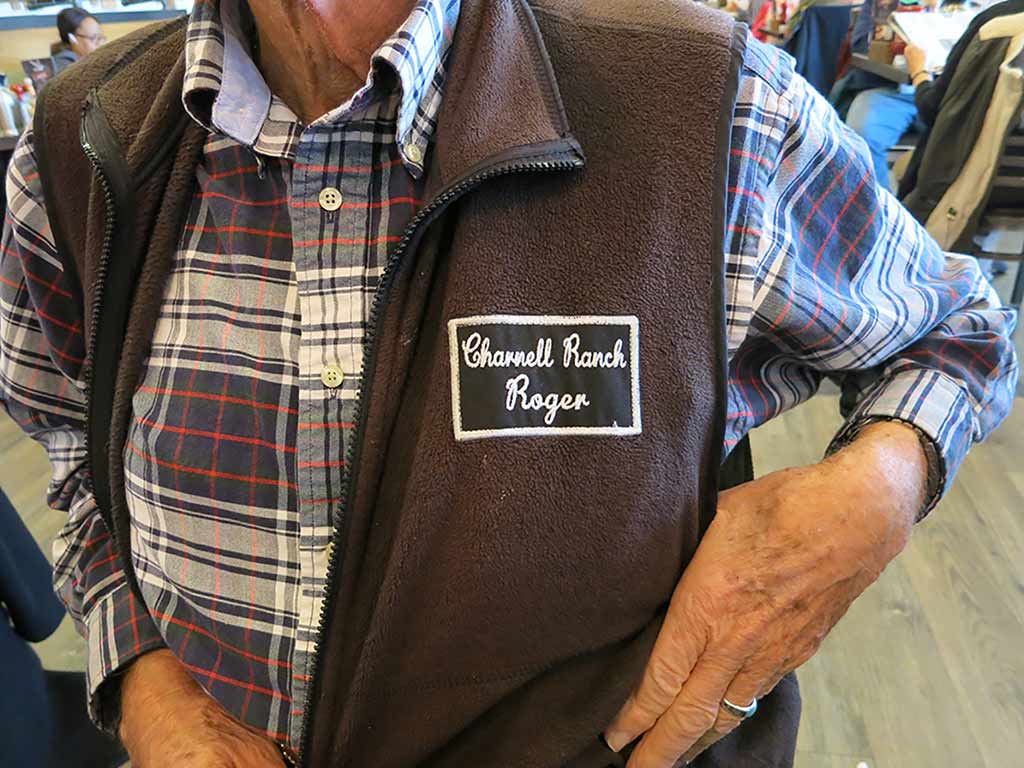 I was lucky that my wife’s father had this land. We had the ranch, but land is so expensive that now a’ days it is very hard to get into ranching and farming. You can pay many dollars for a piece of land that you don’t know how you will ever be able to make land on it growing corn or wheat or soybeans or whatever. As far as pasture land, the land isn’t as expensive as cropland, but still with taxes and everything, it is a hard job to try to make ends meet or to make a living on it. If someone wanted to be a rancher, they would have to have capital backing of some kind.
I was lucky that my wife’s father had this land. We had the ranch, but land is so expensive that now a’ days it is very hard to get into ranching and farming. You can pay many dollars for a piece of land that you don’t know how you will ever be able to make land on it growing corn or wheat or soybeans or whatever. As far as pasture land, the land isn’t as expensive as cropland, but still with taxes and everything, it is a hard job to try to make ends meet or to make a living on it. If someone wanted to be a rancher, they would have to have capital backing of some kind.
- « Previous person: Joy Nack
- » Next person: Rosie Willis